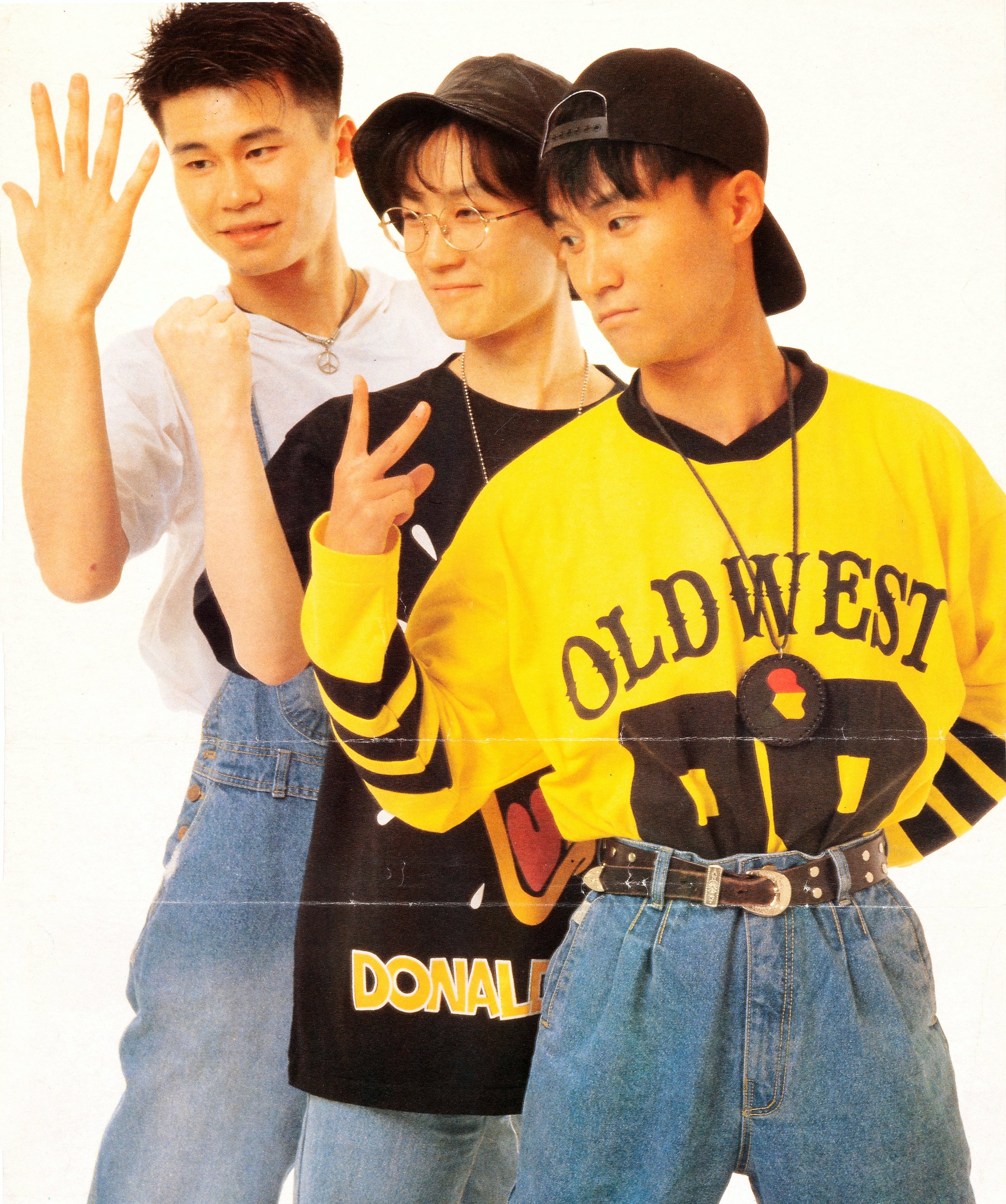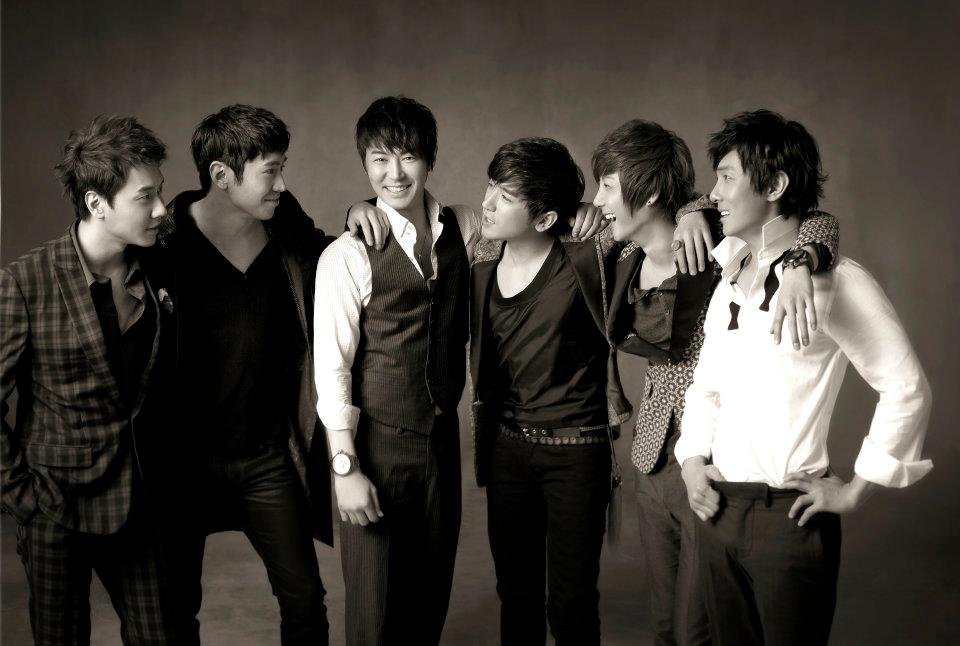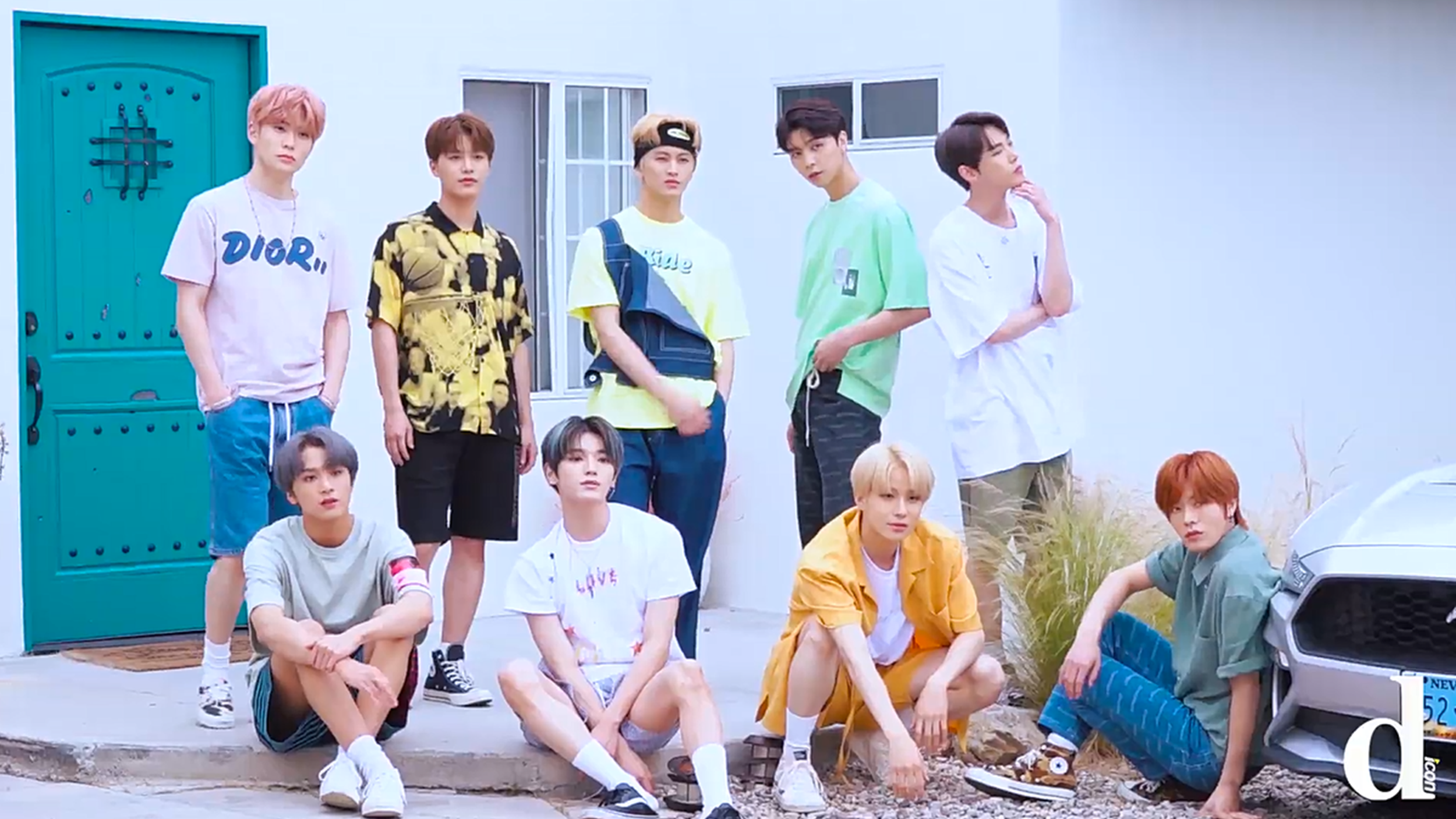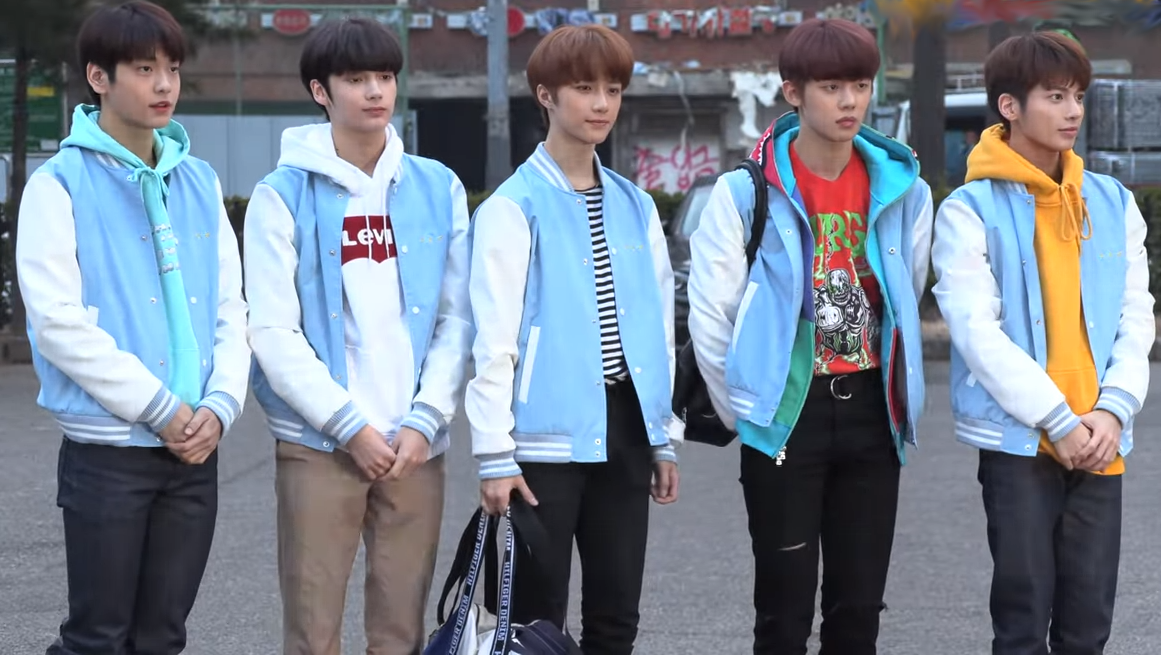Roots of KPop
History

While not considered it at the time, the earliest artists that resembled what would become K-pop appeared in the 1950s. The Kim Sisters were one notable group of three Korean singers. They toured the United States throughout the 1950s and 60s. They sang American pop songs in English, despite not being able to speak much English. The Kim Sisters frequently performed for American soldiers during the Korean War. They also collaborated with popular American artists including Louis Armstrong and Dean Martin.
By Chick Sponder - http://kimsistermia.com/photos/4.jpg, CC BY-SA 3.0, https://commons.wikimedia.org/w/index.php?curid=22678822
K-pop groups as they are know today began to appear in the 1990s. As dance music became more popular in South Korea, combined with rap and hip-hop influences, the first generations of idol groups began to emerge.

Seo Taiji and The Boys were one of the first groups, they are credited with popularizing rap music in South Korea. The group also experimented with other Western music genres, hybridizing these genres with Korean ballad music. These new musical styles, as well as the prominence of choreography, created the basis for modern K-pop. The group rebelled against many conservative ideals of Korea in the 1990s. Frequently they went against censorship laws active at the time. Multiple times they faced scrutiny, such as being banned on national television after they appeared with dreadlocks.
By 국립민속박물관 - 국립민속박물관, KOGL Type 1, https://commons.wikimedia.org/w/index.php?curid=149606642
The idol industry as it is known today began with SM Entertainment in 1993, their first choice, Hyun Jin-young, was found to be using methamphetamine, and because of this, the industry pivoted to establish a strict training system. This system would become the standard for the recruitment and training of idols in South Korea. Once accepted, trainees undergo training in singing, dancing, language, and the maintenance of an acceptable image in line with their intended appearance. The process can take months to years, with no definite standard. The training paid for by the entertainment company is expensive, costing upwards of $3,000,000 USD. There are reports that trainees are forced to undergo plastic surgeries or undergo starvation to meet weight requirements to fit established beauty standards.
Fans often have strong relationships with their favourite idols. The idols personalities allow for long fan and artist relationships, for better or for worse. There have been times when the protests of fans online were able to reverse the management decisions of the idols.
Timeline
1945, August 15
Korea is liberated from Japan. Korea is divided on the 38th parallel into American and Soviet controlled zones.
1950, June 25
The Korean War begins as the North advances across the 38th parallel.
1953
The Kim Sisters become popular internationally. American soldiers in Korea enjoy popular Korean music, allowing it to spread overseas. The Kim Sisters will go on to perform many times on American television and in the United States.
1953, July 27
The Korean Armistice Agreement is signed. This stops the war and creates the demilitarized zone that persists today. The war is technically still ongoing.
1967
Hyundai releases their first model, the Cortina.
1980s
South Korea sees a shift towards computer and technology production.
1985
South Korea sends a successful expedition to Antarctica.
1985
Hyundai builds their millionth car.
1988
Samsung releases their first mobile phone, the SH-100.
1988, February 17
The King Sejong Station is established in Antarctica.
1988, September 17 - October 2
The 24th Olympic games are held in Seoul. This makes Korea the first mainland Asian nation to host the Olympics. The Olympics helps South Korea to re-emerge on the world stage, following World War II and the Korean War.
1991, September 17
North and South Korea join the United Nations.
1992, April 11
Seo Taiji and The Boys make their debut. Seo Taiji and The Boys quickly became extremely popular, revolutionizing the K-pop genre.
1995, February 14
SM Entertainment is formed, one of the largest K-pop entertainment companies.
1996, February 24
YG Entertainment is formed, the 2nd largest K-pop company.
1997, April 15
JYP Entertainment is formed, the third of the three largest K-pop companies.
2000s
The Hallyu Wave begins in Asia. K-pop begins to find popularity across Asia.
2007, May
Passenger trains cross between the North and South Korean borders.
2007, August 5
Girls’ Generation makes their debut. In the following years, they will become one of the most popular female K-pop groups. They are sometimes known as the “Nation’s Girl Group.”
2008, April 8
Yi So-yeon becomes the first Korean astronaut. She carries out several different experiments abroad the ISS involving the effects of zero gravity on biological processes.
2009, June 29
The first Samsung Galaxy is released, the GT I7500.
2010s
The Korean Wave expands to North America and Europe. K-pop begins to rise in popularity.
2012, January 31
Girls’ Generation appears on the Late Show with David Letterman, the first Korean musical performance on the Late Show.
2012, November
PSY’s Gangnam Style becomes the most viewed K-pop video on YouTube, as well as the most viewed YouTube video overall. It also claims the title of the first YouTube video with one billion views in December of that year.
2012, December 19
Park Geun-hye is elected as the 11th president of South Korea and the first female president of the nation.
2018, February 9-25
South Korea hosts the 2018 Winter Olympics in Pyeongchang. The games see North and South Korean athletes compete together on a Women’s Ice Hockey team.
2018, April
Kim Jong-un meets with President Moon Jae-in. Talks occur and an agreement is created to reduce hostilities and nuclear proliferation.
2019, May 21
Parasite premiers at the 2019 Cannes Film Festival, becoming the first Korean film to win top prize. It will later become the first Korean film to receive any recognition at the 2020 Academy Awards, winning best picture.
2022, May 31
K-pop group BTS speak at the White House during a visit with President Joe Biden. BTW speaks on issues of Asian inclusivity, anti-Asian hate crimes, and diversity.
Hallyu
Hallyu is also known as the Korean Wave, it is the phenomenon that saw the dramatic rise in the popularity of Korean cultural exports such as music and television show and movies. Hallyu began in the 1990s in Asia, with Korean cultural exports to Asian markets, however, political and financial conditions around Asia and the world soon facilitated the explosion of Korean culture into North American and European markets as well.
By Joseph Ferris III from On a Ship - Teen K-pop Fan Club, CC BY 2.0, https://commons.wikimedia.org/w/index.php?curid=21200193
The 1997 Asian Financial Crisis saw many nations and companies short on funds, because of this, broadcasters more often opted for cheaper Korean productions, as opposed to the previous choice of Japanese and Hong Kong television, which was far more expensive to purchase. Also ongoing at this time was an increase in funding within the South Korean Ministry of Culture. During Korea’s period of military dictatorship, Chun Doo-hwan, after taking power during the coup d'état of December 12th, merged all Korean media companies, tightening state control. This media conglomerate was given increased funding to allow it to compete with Japan’s industry, as the Japan-South Korea Joint Declaration of 1998 saw previous restrictions on media imports lifted. With many broadcasters choosing Korean film and television, as well as an increase in funding, the Korean media industry was able to flourish, with K-pop being a part of it.
Further government support in the 2010s and an increase in awareness through new and better social media networks enabled the Korean Wave to spread to Europe and North America. One early success as part of the expansion was the well-known Gangnam Style by Psy. More recently, television shows like Squid Game have expanded the popularity of Korean cultural exports.
By Airman 1st Class Justin Veazie - Kadena kids get free toys - photo 3 in slideshow., Public Domain, https://commons.wikimedia.org/w/index.php?curid=22608332
The South Korean government continues to heavily support the K-pop industry, subsidizing many aspects of the business. K-pop is a massive part of Korea’s “soft power,” whereby the nation gains notoriety and influence on a global stage not through military or trade power, but through massive cultural importance. The popularity of K-pop has been shown to increase the sales of Korean products, as well as increasing Korean tourism. As a part of this, K-pop stars and groups often promote specific products or brands.
Generations
K-pop groups appear in generations. Often, the largest differences in styles, both in presentation and music, emerge with new generations. K-pop companies frequently use long-term contracts, that tie idols to companies for several years. This contract system worked well with the later generation of idols, as they would follow a standard schedule of album releases, tours, and breaks. The long contracts have, however, been criticize for keeping idols tied to companies, often with terms that greatly favour the corporation. Legislation introduced by the Korea Fair Trade Commission in 2009 restricted the length of these contracts.
The first generation of idols appeared in the 1990s. Typically, these were five-person groups, with every member assigned a distinct vocal role. Different idol groups at this time were designed to appeal to different demographics. Some examples from this generation include Groove Over Dose (g.o.d.), which appeals to a broad demographic. Shinhwa, appealing to male audiences appeared in 1998, while Baby V.O.X. appealed to a female demographic. S.E.S and H.O.T. must also be considered as extremely influential in the 1990s Korean music scene and both groups had a large fanbase.
The first generation declined, as audiences lost interest due to the perceived notion of inauthenticity as this generation often relied on lip-synced and heavily edited vocals. This generation set the standard of ‘group dance,’ with moves that could be individually and easily replicated by fans.
The second generation, starting around 2000, saw more solo idols. Groups at this time were also beginning to be more closely managed, as personalities, as well as singing and dancing abilities, were more scrutinized by management companies. These groups sough wider appeal, with companies aiming to capture the 30-40 age demographic as fans, whereas earlier groups were generally more popular with younger audiences. The second generation also saw groups getting larger, with sub-groups, or ‘units,’ making up the larger group of six or more idols.
The third generation of K-pop idols saw the mass export of K-pop and idol culture to North American and European markets. EXO, a large K-pop group featuring multiple subgroups was one of the first to break out into these markets and become a giant success. Throughout the 2010s, EXO endorsed many Western products and films such as Sketchers and Star Wars. Vogue even referred to them as the “Kings of K-pop.”
While EXO was the most popular male group in Korea, Girls’ Generation aka SNSD was the most popular girl group during the same period.
BTS is considered a part of the third generation, and notable for introducing K-pop to mass global appeal.
In the late 2010s and early 2020s, a fourth generation of K-pop groups began to emerge as members of older groups were beginning to start their solo careers. The new generation of groups includes groups such as NCT, TXT, NewJeans, and Stray Kids.
Controversies
K-pop in general, as well as specific groups, have faced criticism for actions in the past. There have been accusations of cultural appropriation, specifically that of African American culture. The issue of Blackface has also appeared in the past. In 2003, the Bubble Sisters saw backlash for the cover of their debut album, where they appeared in extreme Blackface, emulating stereotypes of African American women. More modern idols such as Wendy, from the group Red Velvet also gave an offensive impression of an African American woman.
K-pop companies have also faced controversy for the treatment of idols and trainees. In many cases, the fans are the ones to challenge these conditions on behalf of their favourite idols and groups, pointing to the strong connections that are built between them.
Controversies extend to how idols’ personal lives are controlled by management. Personalities are carefully curated and controlled, often with the desire to prevent any scandal that could harm an idol’s career. This can be seen in the “no relationships” rule that idols must frequently abide by; forcing them to “hide” their relationship situation so as not to alienate the fanbase. Rules such as this are widely accepted among companies and fans alike, as they believe, that relationships can distract an idol or damage their career.
























